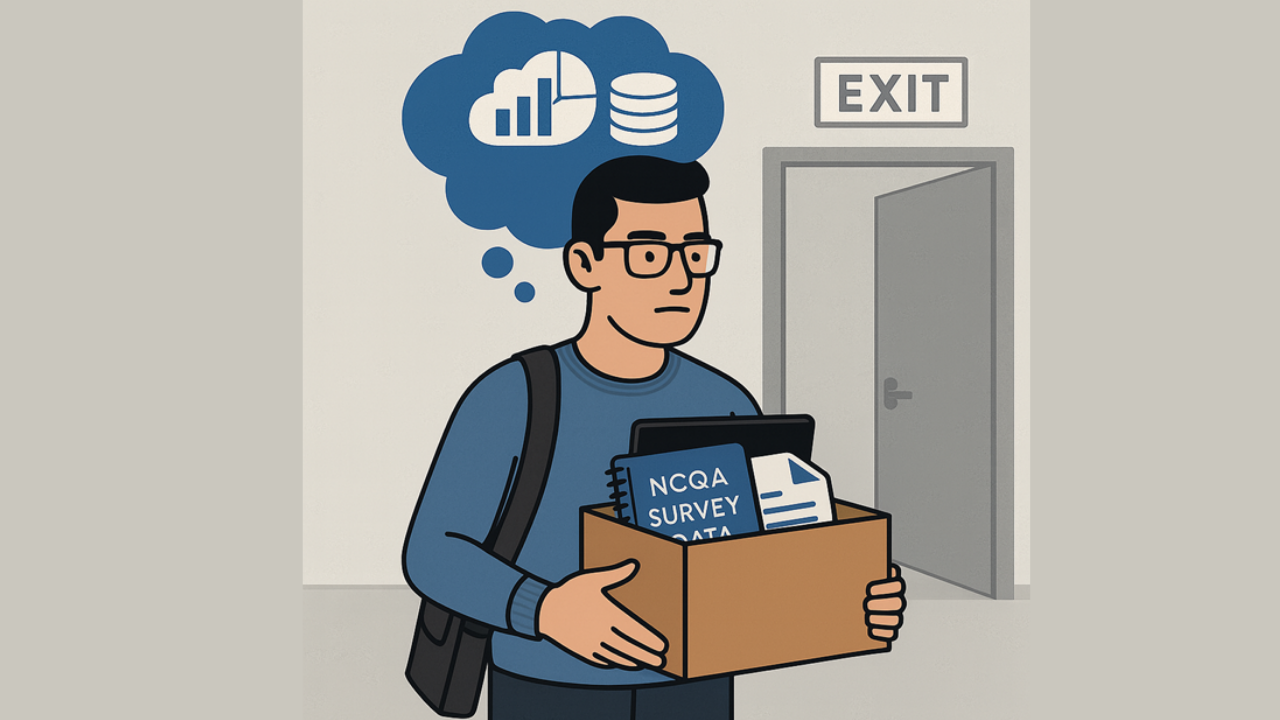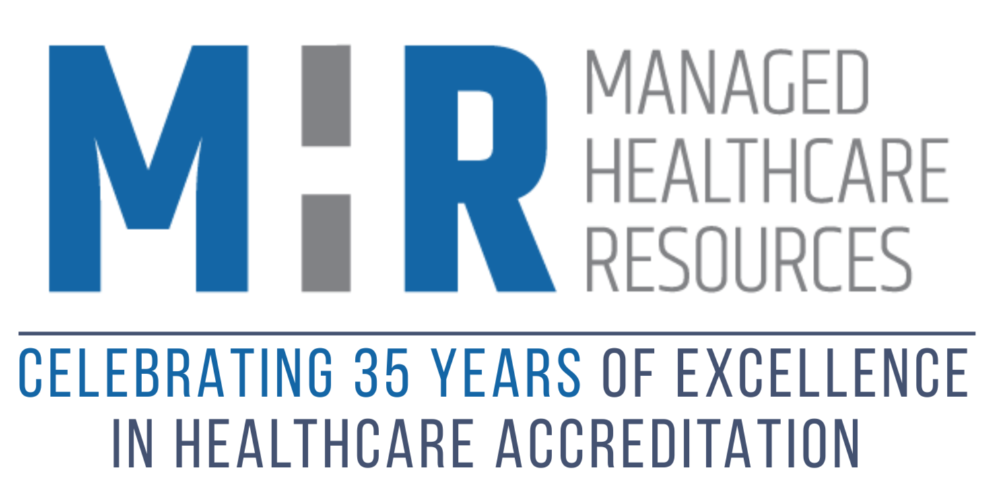
Estimated time to read: 3 minutes
Does this sound familiar? Your NCQA survey is approaching, and you discover that the data you need is either absent, imprecise, or outdated. Reports and analyses could not be completed on time or in the required format. Loss of points or a corrective action plan (CAP) is expected. Unfortunately, this scenario is not uncommon.
The cause? The more familiar and often predictable ones are those where staff transition to a new role or leave the company, taking their expert knowledge with them. A lack of data management protocols can lead to data disasters, which are high-cost and largely avoidable.
Let’s see how to avoid these disasters by using MHR's Data Collection and Methodology guides along with our Analysis templates so that NCQA surveys can proceed smoothly, even in the face of operational disruptions.
Maintain Operations When Faced with a Disruption
Avoid disruptions during staff transitions or other unexpected events by using MHR’s tools for documentation and applying the principles of business continuity, including:
• Risk Assessment: Identifies potential risks and the likelihood of impact
MHR’s Gap Assessment tool helps clients identify areas where data collection may be problematic or pose a risk.
• Impact analysis: Identifies consequences of downtime
If accurate data is not available for an extended period of time, you could miss your ability to meet your look-back period (LBP).
• Planning: Develops strategies to maintain data collection
• Redundancy: Ensures backup systems are in place to prevent failure
• Resilience: Designs processes that continue operations during change
• Testing & Training: Validates continuity and preparation plans
Use MHR’s Data Collection and Methodology guides to document your strategies and processes for NCQA reporting.
MHR is not just about making improvements. We are about helping you make impactful change that will sustain your NCQA Accreditation over time. Our Data Collection and Methodology guides are part of MHR’s “secret sauce” when partnered with our Analysis templates.
What Are MHR’s Data Collection and Methodology Guides?
MHR’s Data Collection and Methodology guides are tools specific to each element and assist health plans in memorializing which data is used, where data is generated, and how it is used to support analysis requirements.
As organizational staff changes or disruptions occur, the foundation for required reporting remains intact. Not only do the guides support data trending over time, but they also support data integrity, validity, and reliability.
Within each guide, you will find:
- Red highlighted text that signifies where to enter your information
- Green highlighted text where examples are provided, for example, metric descriptions
- NCQA requirements by Factor
- Where your data is used for quantitative and qualitative analysis
- Directions on where identified opportunities and/or interventions are required (Example: NET 3 & ME 7)
- Tables for measurement descriptions, data sources, staff or department accountability, tracking reports, and changes to methodologies
- Step-by-step instructions, tips, and reminders from MHR Consultants
NCQA Standards Requiring Explanations of Data Collection
In each 2025 Health Plan Accreditation standard listed below, explanations of how your data is collected and managed are required when reporting your evidence. Here is where clear and precise documentation can help prevent data disasters if you suddenly face a disruption when a key person leaves your organization.
• Marketing Information: ME 3C
• Pharmacy Benefit Information: ME 5C
• Personalized Information on Health Plan Services: ME 6C-D
• Member Experience: ME 7C-F
• Availability of Practitioners: NET 1A
• Availability of Practitioners: NET 1B-D
• Accessibility of Services: NET 2A-C
• Assessment of Network Adequacy: NET 3A-C
• Physician and Hospital Directories: NET 5C-D
• Population Identification: PHM 2B-D
• Population Health Management Impact: PHM 6A-B
• Continuity and Coordination of Care: QI 3A
• Clinical Criteria for UM Decisions: UM 2C
Key Points
o Disruptions caused by staff transitioning to new roles or leaving the organization are common causes of data disasters.
o Data collection methodologies must be reported to NCQA.
o When methodologies are backed up and communicated throughout the organization, redundancy is promoted, which helps maintain operations during times of disruption.
o MHR’s Gap Assessment tool, used by MHR Consultants, helps identify where data collection may be at risk.
o In an Accreditation Lead role, ensure that responsibilities for documenting and communicating data methodologies are assigned.
o Perform routine testing of your data collection processes.
o Evaluate how your organization documents data collection methodologies. Establish a consistent process to enhance communication and simplify training for business continuity.
Take Action
• Don’t delay. Data disruptions are costly errors. Assess how your organization is capturing its data processes. They are key to your reporting and analyses.
• Visit our Products page, Tools and Templates, for a listing of the Guides under each standard set.
Consider our Data Methodology and Collection Guide Bundle: https://www.managedhealthcareresources.com/across-standards-templates-tools
• Contact your MHR Consultant for Training on Analysis, where you put to use the Data Methodology and Collection guides.
If you are not an MHR client yet, schedule a Discovery call, and read about How We Work and the types of Organizations we guide to NCQA Accreditation. We would love to discuss how we differ from other NCQA consulting firms!
MHR implements a thorough quality review process for all blogs. This blog features expert insights from Kimberly Carpenter Petit. Learn more about MHR’s Independent Consultants at managedhealthcareresources.com/AboutOurConsultants



